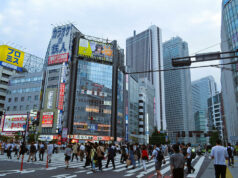By Tony Samson
EVEN as PR advice to what is seen by a client as a burning issue of crisis proportions, the admonition to “do nothing” is received with grave skepticism — what are we paying you for? And yet, leaving things alone can prevent a crisis which too much attention will actually create.
The phrase “benign neglect” is attributed to Daniel Patrick Moynihan who was Nixon’s adviser on urban affairs and later long-serving Senator of New York. The recommended policy of neglect referred to how the hot issue of race in 1969 could benefit from inaction to lower the rhetoric and get it moving on its own with a lower profile. Such a prescription of “doing nothing” is often controversial, especially when dealing with prickly issues, like race and poverty.
Economic issues, except when they impact price and inflation, are usually misunderstood and therefore ignored. It is not the stuff of screaming headlines, except in a water crisis followed by the water utility being fined a billion pesos and its CEO dismissed. Otherwise, even more high-impact economic developments like the lowering of the bank reserve ratio, the legislated tariff on imported rice replacing a government monopoly, or the final implementation of REIT are largely neglected even by media…except this paper.
Expletives and the latest rants attract more attention, and even these are gradually being discounted, if not neglected as well.
Still, government should be given credit when it is not paying attention, allowing unsupervised adults to acquire companies, float new bonds, expand their plant and raise employment rates without any congressional oversight. Resisting the appearance of any interest in the economy can be a deliberate policy.
Truly, negligence, otherwise known as the sin of omission, can be a virtue.
Certain plants like cactuses and other succulents require only to be watered once a month. To nurture them too much with daily ablutions will turn them yellow and eventually kill them. This neglectful handling applies as well to olive trees, which in Greece exceeds in number the population by a factor of two. These extraordinary trees, prized for the oil their fruits yield, require little care, depending only on rain to make them survive and grow.
Relationships as well can do with some low-maintenance affection (give me space). It’s not negligence really to forget gifts for birthdays. Sometimes it’s a reciprocal arrangement to save for something more interesting, like a trip to El Nido to watch the cliff diving contest.
Government occasionally dampens moves to push for legislated wage hikes (usually coming up this time of the year) as these are perceived to be detrimental to investors’ cost of doing business, and eventually leading anyway to higher levels of unemployment and more contractualizations. It refuses to consider price controls for necessities, specially food. This can reward the city consumers at the expense of the producing farmers, leading eventually to supply shortages and a black market with even higher prices.
We cheer enlightened inaction. If the economy cannot be described as good. It can still be fairly rated as…not bad. Anyway, economics is too important to be supervised by politicians. Leave the businessmen alone to create jobs.
Allowing the unregulated market to do its work follows Adam Smith’s “invisible hand” theory. This states that people seeking their own self-interest and working independently of each other will as though guided by an invisible hand achieve the common good. This is an economic approach of leaving the market unregulated and allowed it to do its own thing. It is referred to as “laissez faire” economics, which is a French phrase that literally means “allow to do”…whatever they want.
Political will is often invoked only in the positive pursuit of goals like the elimination of corruption, the streamlining of the bureaucracy, the assertion of rights of private property, the cleaning of beaches, or the building of more classrooms. It is seldom applied to intentional inaction and indifference. And yet, it takes political will too not to interfere.
Maybe, media too can exercise some benign neglect on CCTV-recorded cell phone snatchings, fistfights in street corners, or the collision of a cement truck with a motorcycle. The barrage of criminal reporting only promotes the fiction (or is it?) that Manila is a dangerous city. Well, viewers can shrug their collective shoulder and switch to CNN to see what disasters have befallen some other countries.
Tony Samson is Chairman and CEO, TOUCH xda



